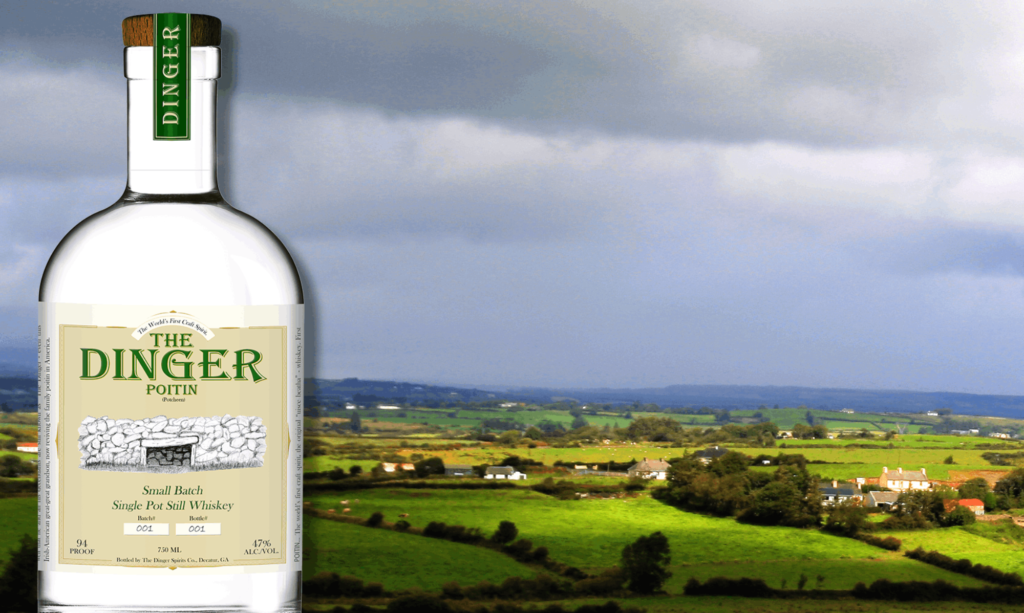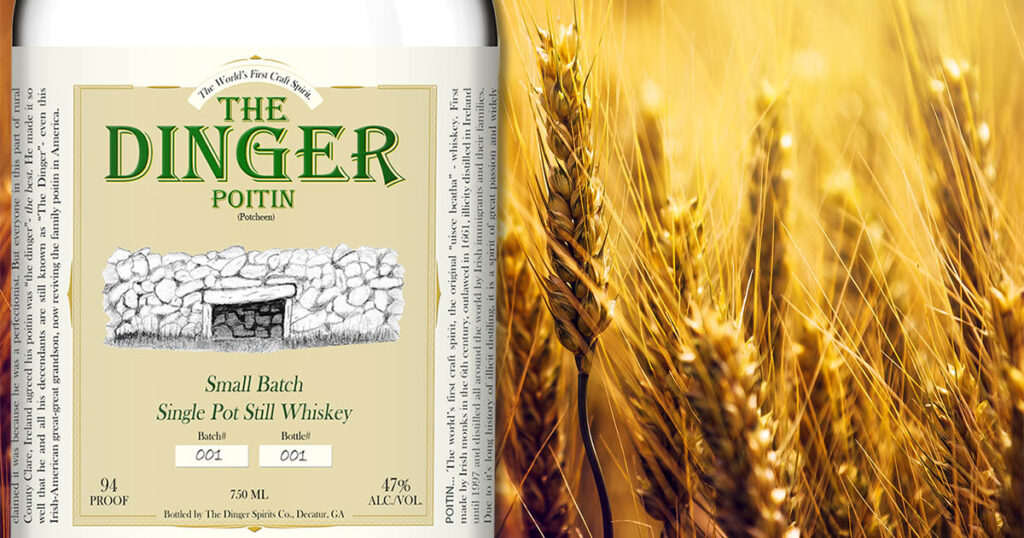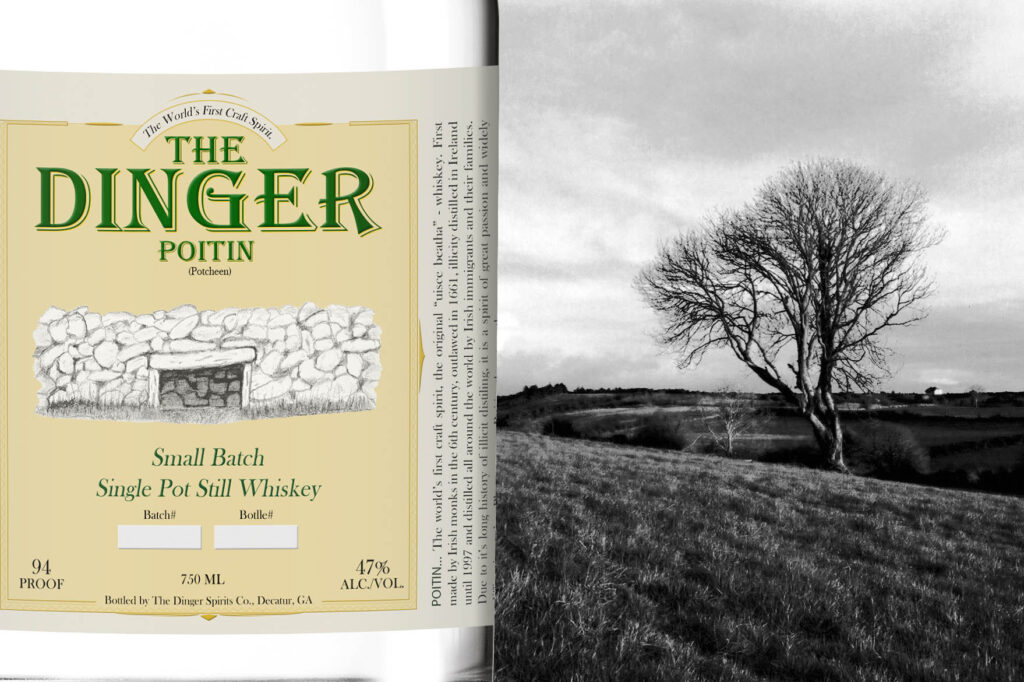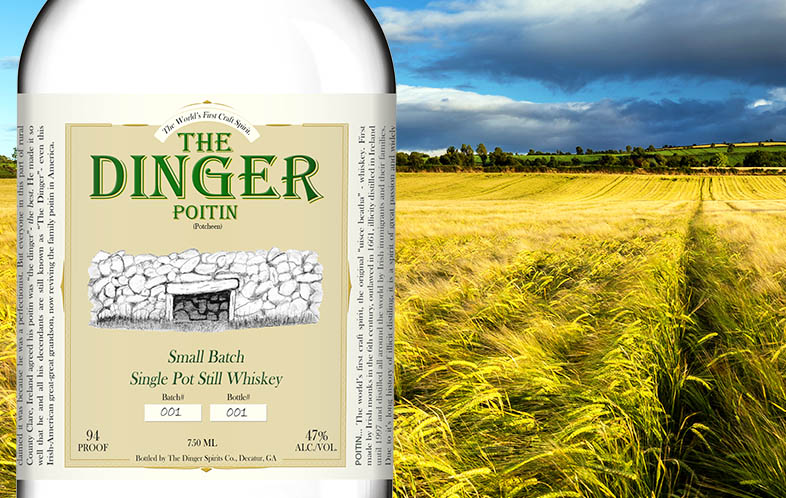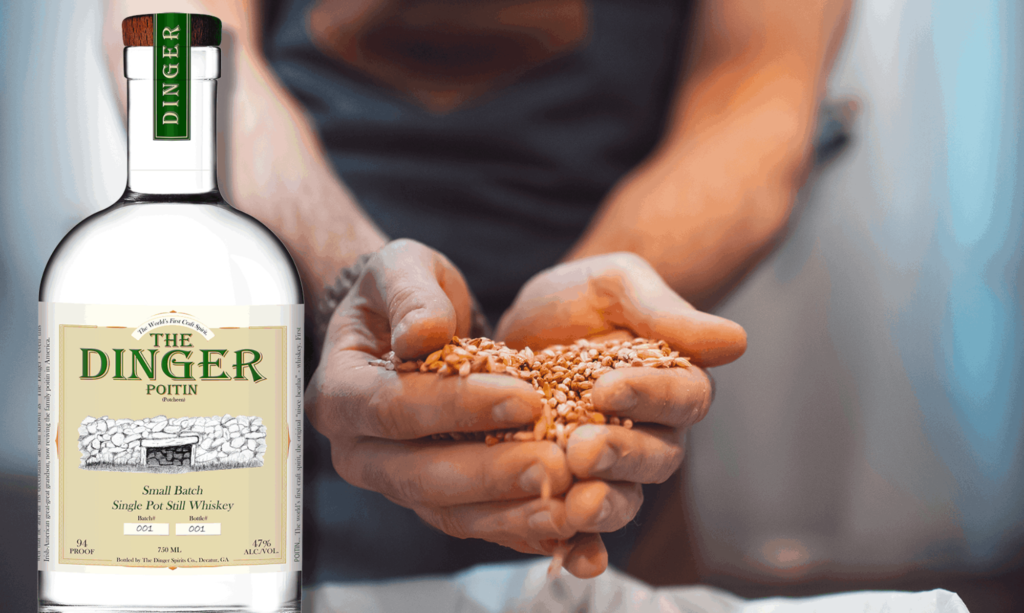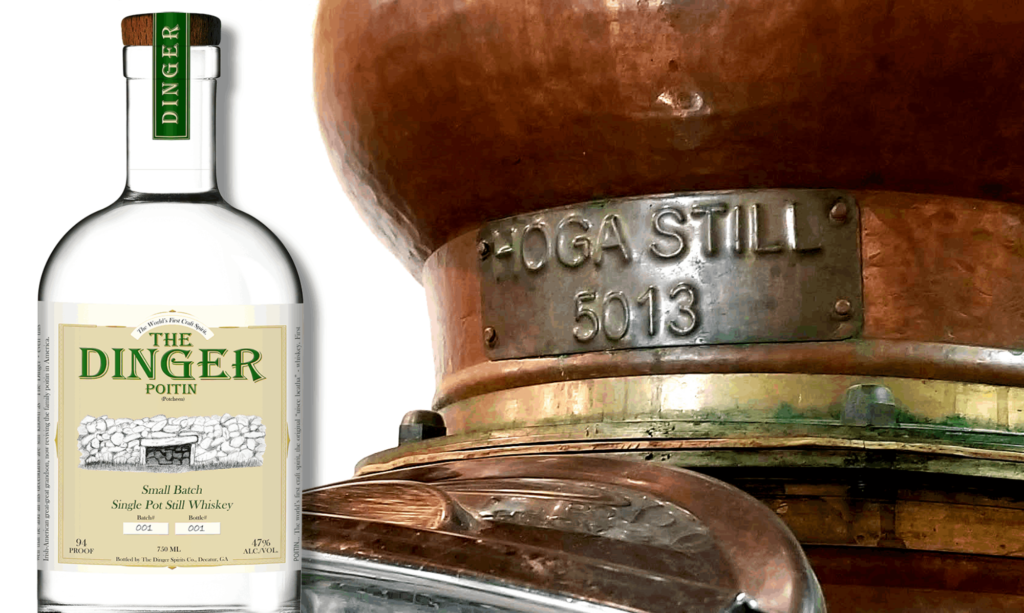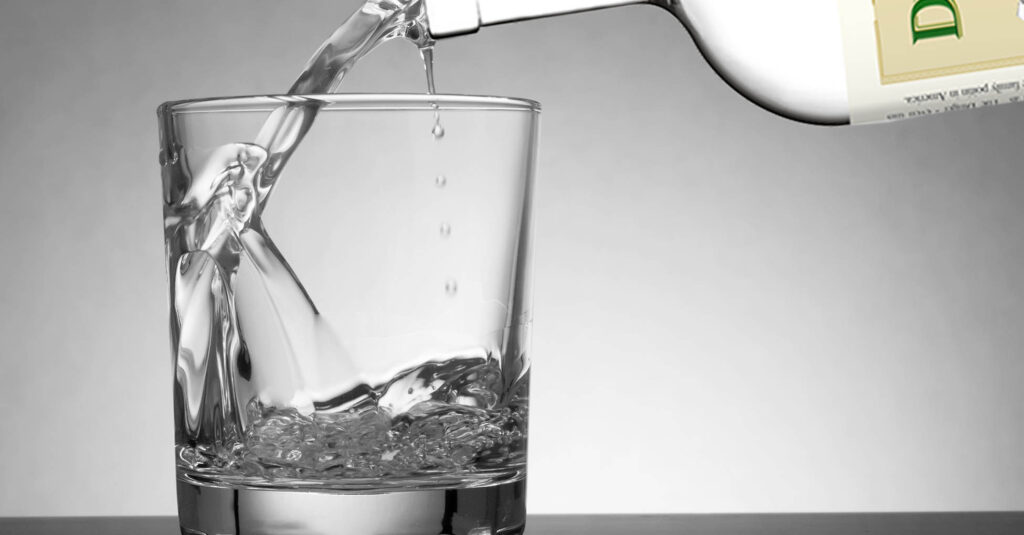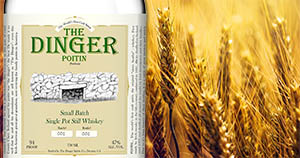What is poitin?
Arguably the world’s first Craft Spirit, Poitin (pot-cheen) was first made by Irish monks in the 6th century, and was known as “uisce betha (ishka baha), literally, “the water of life” – what everyone the world over now calls whiskey. The British outlawed small-batch Irish distilling in 1661, driving illicit production of it to rural corners of Ireland, and most corners of the world as some of the Irish diaspora took their beloved Poitin recipes with them.
Given that history, Poitin has a mixed reputation – some of the illicit “Irish moonshine” literally killed the imbibers. But according to the book In Praise Of Poteen, there were a few small, single pot distilers that had entire family reputations built around the quality and distinctiveness of their craft. One such family was mine…
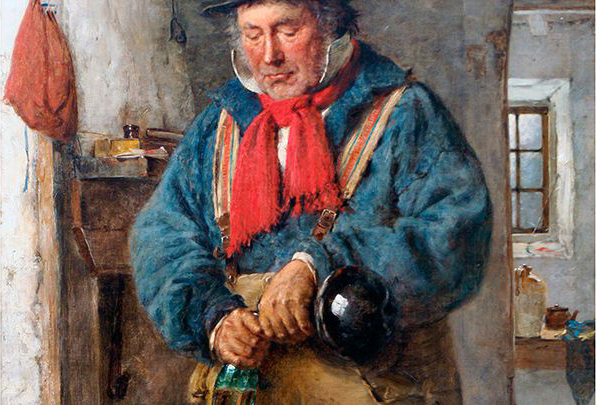
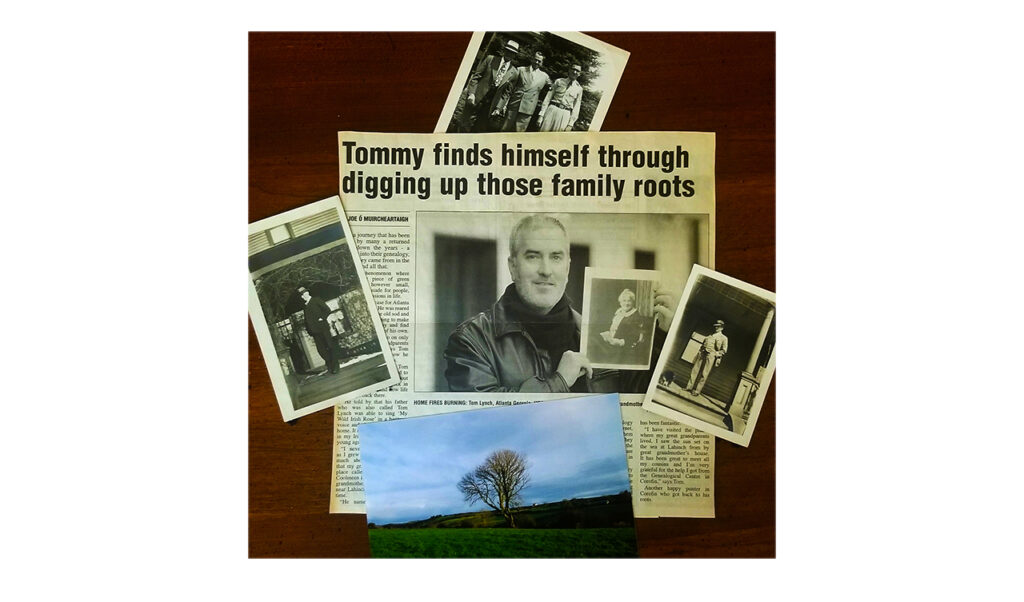
So, who is “The Dinger”
On my first trip to Ireland to connect with distant relatives I found there were a large number of Lynch families in the small parish just up from the Shannon River in west County Clare. Each was were known by nicknames handed down over the generations. There was “The Slasher” Lynch’s, who’s forebarers were the best at harvesting the grains. “The Sis” Lynchs were from the one sister among the original Lynchs of the area. “The Bishop” Lynchs came to that name when at his baptism, the local priest declared “He’s an awfully handsome lad. No doubt when he grows up he’ll become a Bishop.” And then there is my branch of this family – “The Dinger” Lynchs.
As happens in Ireland, there were a number of opinions about where the nickname originated. Then one day I visited with one of the older members of the community, Tim “The Jobber.” As he did for much around there, Tim had the definitive story:
Back in the day, when you were the best at something, they would say you were “the dinger.” That term is the reason American’s call something great a “humdinger” and why we call home runs “dingers.”
Back in the day my family were local poitin makers – in essence, moonshiners. But our family’s poitin would not have been anything like the bad stuff. No doubt, Tim explained, it would have been “rich and smooth with a touch of sweet and a just bit of comforting heat for a cold rainy evening.” He said the water from the spring we drink from on the old Lynch farm would have added to what made it special, but mostly it would be the cunning and care of my great grandfather, Thomas H Lynch and his forebearers who likely handed down the family technique. Thomas is pictured to the right on the porch of his home in Pennsylvania.
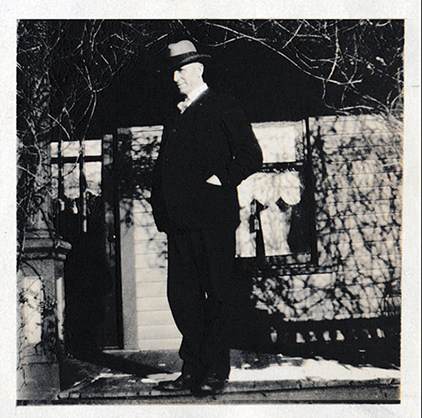
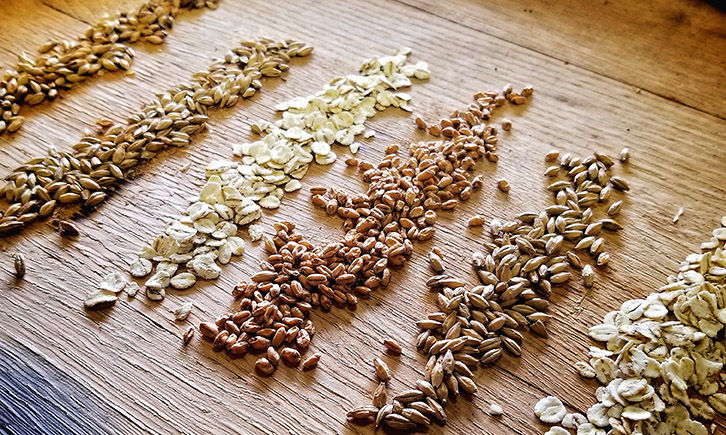
The Dinger Poitin we make is an Irish-American spirit; a little bit old world, and a little bit new world. We make our poitin with a modern, complex and diverse set of seven grains and malts that give it tremendous character and flavor. We enhance that modern mash with old-world distilling in an direct fire alembic copper pot still that leaves in more esters and oils than other distilling processes.
In Ireland, to be called poitin, the spirit cannot be in oak any more than 10 weeks. We follow that rule and store our poitin in oak (with a twist) for less than 10 weeks before bottling.
What’s next? Well, it has been a long road from our first experiments with mashes and fermentations, original label design, wholesaler presentations and distiller agreements. After two years we were ready to launch for St. Patrick’s day 2020, when the pandemic hit. We turned our first batches into hand sanitizer and then waited for it to end. As it did we relocated from Georgia to New York City and recently moved again to the Hudson Valley – the perfect place to source and make an artisan small batch craft spirit.
So, keep an eye out for news of our next try at a launch party, hopefully in 2024. Getting it right has been more important than any consumer launch date. I feel the making of this craft spirit is a sacred bond with my ancestors. It has to be good enough to be worthy of the name, “The Dinger.”
Slainte!
Tom
